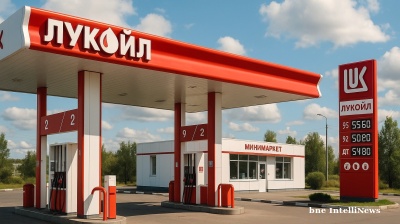Hungary has reached an agreement on gas deliveries from Russia for both 2019 and 2020, Prime Minister Viktor Orban said at a joint press conference with Russian President Vladimir Putin in Moscow on September 18.
The Hungarian prime minister has built strong ties with Putin over the years, defying his EU partners. The Russian president has become his main ally since he announced his plans to build an illiberal state in 2014. Cordial meetings have been held between the two leaders at least seven times since the EU imposed sanctions against Russia.
The Hungarian PM has been a vocal critic of these sanctions, which hit Hungarian farmers hard. The Orban government maintained that cooperation with Russia is in Hungary’s economic and national security interests.
It is in Hungary's national interest that "there should be good cooperation between the two halves of Europe", including good Hungary-Russia ties, Orban said at the press briefing. Putin said that Hungary is one of Russia’s key partners in Europe
Energy issues were at the heart of the talks in the past two days. On Monday, Hungary's Minister of Foreign Affairs Peter Szijjarto met with Gazprom's CEO Alexey Miller to discuss the terms of gas deliveries for 2019 and 2020
Hungary plans to buy about 4.1bn cubic metres (cm) of gas from Gazprom, which is 40% of its annual gas consumption, currently at 10bn cm, he said. Hungary's long-term contract for gas deliveries from Russian runs until 2021.
At the press conference, which lasted only 15-20 minutes, Orban had asked Putin to seriously weigh putting the path of a gas pipeline which would connect the Turkish Stream pipeline with Central Europe through Hungary.
The Turkish Stream will extend from Russia across the Black Sea to Turkey bringing Russian gas to the Turkish and Europe markets bypassing Ukraine. The pipeline will be owned 50-50% by Gazprom and the Turkish state oil and gas company Botas.
"We are examining the possibility of connecting our Hungarian partners with the new routes of transporting Russian gas to Europe. I do not exclude that a land extension of the Turkish Stream pipeline could be built crossing Hungary," Putin added.
Hungarian governments in the last ten years were fervent supporters of Russia's South Stream project that would have shipped some 63bn cm of Russian gas across the Black Sea and to southern Europe and through Hungary. The project was blocked by the EU in 2014.
Orban has sought to diversify his country's gas imports, and two-way interconnectors with Slovakia, Croatia, and Romania were established in recent years. Orban himself declared that the interconnector allowing deliveries of some 4bn cm of gas from Romania will end the era of Russia's gas monopoly in Hungary from 2021 or 2022.
The government also began talks on the price of gas to be supplied from the Croatian LNG terminal in Krk, once it is completed in the second half of 2020.
Hungary tied to Russia on Paks expansion
Orban's critics welcome these initiatives but point out that as Hungary loosens Russia's grip on gas supplies, it has tied itself to Moscow for at least 30 years by picking state-owned Rosatom for the expansion of the Paks nuclear power plant, financed 80% from a 30-year loan from Russia.
Paks currently accounts for 40% of the electricity produced in the country.
On the subject of the Paks upgrade, Orban said the importance of the project “goes far beyond Hungary”. He noted “technical difficulties” in the implementation of the project and referred to “the bureaucratic practices of the European Union.
The €12.5bn project, of which €10bn is financed from Russian loans, is the largest ever investment in Hungary. The expansion suffered a two-year delay but some of that can be blamed on the government, which also failed to submit some major licenses in time, analysts point out.
Most of the documents and contracts on the expansion have been unclassified, except for one very important detail: it is still classified as a national security secret whether Hungary would have to pay any compensation in case the project is not built.
Market conditions for financing the project have improved significantly since 2014, yet Hungary has not raised the issue of amending the terms of the contract.
Experts also contest the feasibility studies, released one and half years after the signing of the contract, and say the possible rate of returns were miscalculated.
Environmental concerns were raised this summer when the Danube hit a near 30 Celsius limit in the area where water is discharged. Impact studies did not provide any assurance that the emitted cooling water will not warm the Danube up over the allowed thermal limit.
At Tuesday's talks, the issue of boosting Hungary's role in the Moscow-based International Investment Bank (IIB) was also on the agenda. The Moscow-based bank is involved in Hungarian projects worth about €70mn. Orban has also called for the launch of a direct flight between Budapest and the Russian city of Kazan.
Pro-government news site Origo reported on Tuesday night that Orban and Putin held a 45-minute discussion after the official talks, without translators.
News
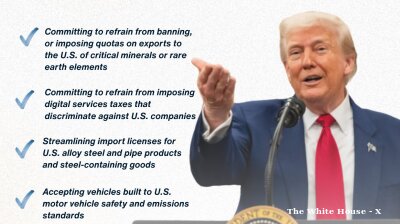
Trump pledges enduring support for Southeast Asia as new trade deals signed
During his visit to Southeast Asia, US President Donald Trump declared that Washington would remain a steadfast ally to the region, as he signed a series of trade agreements with four ASEAN member states.
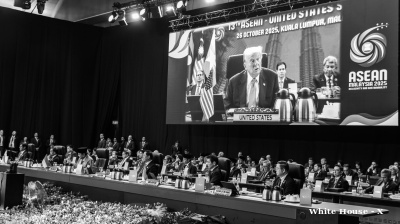
US grants 0% tariffs to Malaysia alongside Cambodia and Thailand
US President Donald Trump has approved a 0% tariff scheme for selected goods from Malaysia, Cambodia, and Thailand, a move formalised during the ASEAN Summit in Kuala Lumpur.
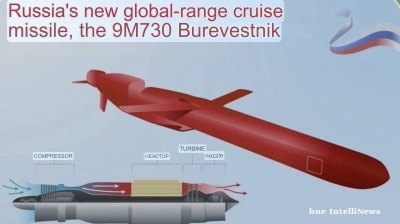
Russia test fires its Burevestnik nuclear-powered cruise missile
Russia’s Burevestnik nuclear-powered cruise missile has no analogues in the world, Russian President Vladimir Putin said, as the Kremlin escalates the unfolding missile arms race with Ukraine another notch.
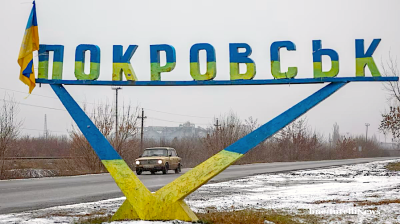
Russia claims to surround Pokrovsk
Russia’s chief of the general staff Valery Gerasimov triumphantly reported to Putin that 31 Ukrainian battalions have been encircled in Pokrovsk and 18 battalions in Kupyansk, the hottest spot in the war.
.jpg)


